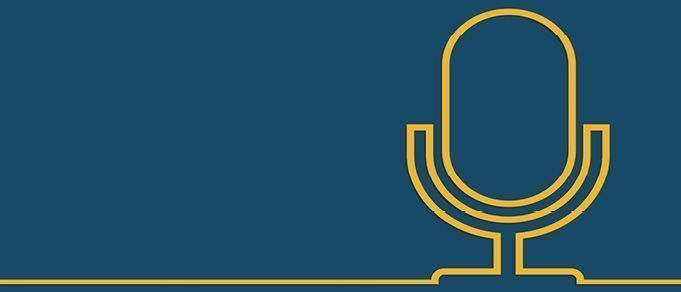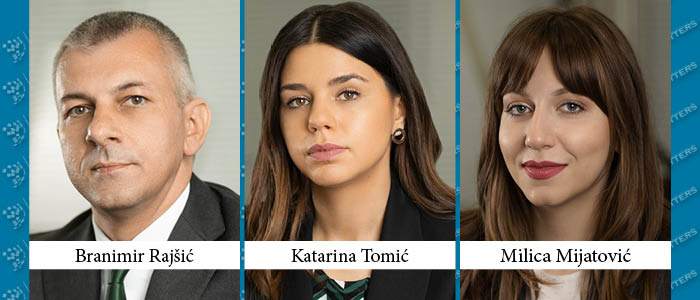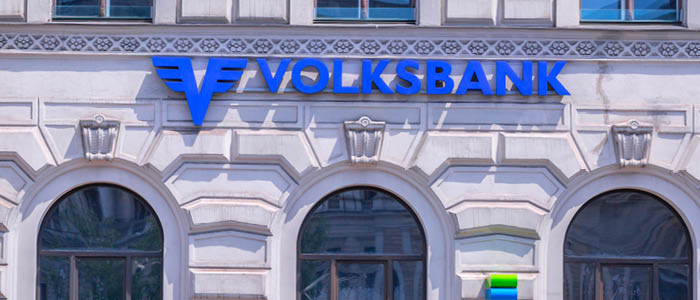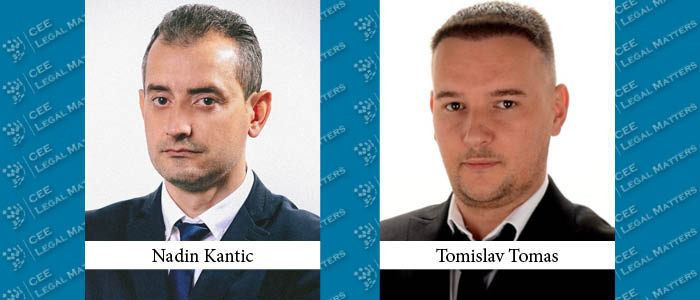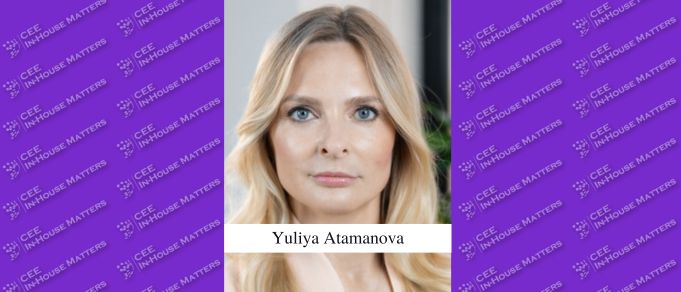Who knows lawyers better than other lawyers? In this issue’s Face-to-Face feature, Maravela & Asociatii Partners Gelu Maravela and Alina Popescu interview Mihaela Popescu, the former Head of Legal at Mercedes-Benz Financial Services.
A.P: Tell us a bit about your career.
M.P.: I had the good fortune to begin my professional career in the highly competitive environment offered by the Romanian banking system. In April 1999 I joined an important division of a Romanian bank, namely the Financial and Private Equity Fund. A year later, I got a new challenge – to work in a newly-established department of the same bank that was to initiate leasing operations as a form of financing. And when I say new, I mean both from a personal perspective as well from a business profile point of view on the Romanian market.
To be honest, I had no idea at that time that I would build a career in finance or banks nor that I would develop and deepen my studies in the legal field, especially as in the same period I was training intensively for the Faculty of Medicine.
Everything became clearer in 2003 when I had the chance to develop my professional experience with one of the top players in leasing industry, Planet Leasing. That’s where it all started. The fact that their portfolio contains almost every important Romanian company requiring impeccable financing services gave me the opportunity to collaborate with highly professional people and motivated me to design my professional profile in this area and to strive for constant improvement in all related areas of knowledge.
The collaboration lasted for almost ten years, during which time I graduated from law school, was appointed Legal Counsellor of the company, and gained substantial legal and financial skills, a high level of accuracy, a detail-oriented personality, and the ability to adapt to a very challenging environment and to assist in growing the company’s business.
2013 found me working within the Legal and General Affairs Department of Intesa Sanpaolo Leasing. It was a short but valuable experience due to the variety of the equipment – especially the industrial machines, agricultural machines, and medical equipment – being leased. While working for Intesa I participated in various projects and training programs provided by professional training companies as well as by Intesa Sanpaolo Bank Romania. I thus developed skills in financial analysis and risk assessment regarding debt recovery.
In 2014 I became the Head of Legal & Compliance for Mercedes-Benz Financial Services Romania. While there, I had the opportunity to meet and collaborate with people from all over the world and became acquainted, among other things, with leasing operations from an international perspective. This allowed me to further develop my management, leadership, and legal skills, thus allowing me to become a resourceful researcher who uses her initiative and sound judgment to get the job done, as well a valuable team member.
Thanks to this wonderful experience I am now ready to embrace a new challenge in an entirely new project – though I am not able to provide details about it yet as it has not yet been finalized.
I am able to say that I have had a steady and healthy professional ascent both in the financial and the legal areas, during which I have gained almost 16 years of experience in the leasing industry and 10 years in the legal field.
I strongly advise those who are at the beginning of their careers not to choose it only for financial reasons but to keep in mind that without passion and boldness they will not be able to successfully move their careers forward.
G.M.: What did a usual day in the office look like for you? What were the tasks that took up most of your time?
M.P.: I learned to manage a very busy day of work quite well. What in the past seemed to me to be unusual and overloaded, now looks different. This is definitely due to the professional experience I have gained and the training courses I have attended.
Of course, I have days when I feel tired or sad, during which I would like to be on an exotic island. After all, we are human beings, not robots. It is normal to be so from time to time.
That is why I mentioned before that it is very important to love your job and exercise it with passion, and without superficiality. If you can do that, you will be able to move on. Otherwise you will fail at some point.
If I have to remember a day at the office in my previous position as Head of Legal & Compliance in Mercedes-Benz, I would say that, at the end of the day, I felt like I just ran a marathon. Without any exaggeration. The work atmosphere was extremely dynamic, without too much time to think, thus requiring impeccable coordination as well as an appropriate prioritization of internal and external requests. Without a solution-oriented personality, in the absence of good organizational skills and the ability to make immediate spot-on assessments of legal needs and strategies, I don’t think I would had succeeded in it.
Coming back to your question about activities that can be time consuming, I cannot refer to a general rule.
As lawyers, we experience all kinds of problems and requests on a daily basis requiring multiple approaches. We don’t have anything predefined or a magic formula which can be applied to solve an issue. It is all about creation, intuition, experience, persuasion, vocabulary, and – last but not least – taking responsibility.
Still, there is one thing I am sure about: When it comes to meetings and delegations, they are necessary, it is true, but they can be really time consuming.
A.P: What was your biggest challenge during your career?
M.P.: To date, my biggest career-related challenge was when I agreed to become part of the Mercedes-Benz Financial Services team.
Why? Because it consisted of three legal entities under one roof, each totally different in its activity and the applicable legal framework, and the role of Head of Legal & Compliance involved additional decision and control functions, including being a member of the Management Committee, a member of the Risk Committee, an AML Officer, and an Antitrust Officer.
The challenge was that I found myself in completely new territory, in terms of ensuring compliance with the rules at both the national and international levels, in addition to needing to exercise those additional functions mentioned above.
It was hard and challenging, but not impossible.
The outcome was that, in succeeding both in focusing on activities on the legal area while also successfully fulfilling all the additional functions, I added another brick to my professional wall by being shortlisted in March 2016 for Global In-House Lawyer of the Year at The Lawyer European Awards in London.
G.M.: What types of legal work did you keep in-house and what did you externalize?
M.P.: I usually kept all activities in-house related to implementing mandatory legal provisions in internal documents and any other norms and ensuring compliance with the legal duties of the company, along with activities related to amending standard contracts and internal documents used by the company, and activities related to corporate governance activities in connection with shareholders, administrators, and the company’s management, or related to the National Bank of Romania.
The basic idea is that all activities that require confidentiality and cannot be externally revealed, along with the activities which are usually the responsibility of an internal lawyer, should be kept in-house.
As a general approach, all the issues that require activities outside the company are entrusted to external counsel. I am referring to matters involving courts of law, executors, investigation bodies, trade registers, and any other local authority. Basically, this is the main idea of having an external lawyer, as the in-house lawyer mainly operates within the company by offering legal assistance to the members of the team as well as to statutory bodies.
Court files, insolvency files, and all sorts of disputes in which the company is involved can be outsourced as well. In these cases, the external lawyer acts as a direct representative of the company and, as the case may be, recommends the strategy to be followed with to protect the company’s interests.
In addition, the in-house lawyer or any other member of the team, including members of management, may ask for legal assistance in all kinds of situations requiring legal input and specialized legal expertise.
All of the above may vary from case to case, depending on the extent of the company’s activities and its portfolio, strategy, and business appetite.
A.P: When you were looking to select your external counsel, what were the main criteria you considered?
M.P.: Prior to the actual selection process it is very important to identify and analyze both the in-house legal department’s needs and the company’s, so that you can search for the most suitable external counsel (for example, it makes no sense to collaborate with a big law office if our request is very simple).
For me, the best candidates should be able to cover a wide range of legal services, and provide both full availability and tailor-made assistance towards the client’s needs, along with high integrity, efficiency, flexibility, and – last but not least – offer reasonable and realistic fees.
It is no less important to observe their determination and yearning to collaborate with the company, so we can be motivated to build a long-term professional relationship.
At the end of the day all that we need is a reliable business partner who is able to keep up with our requests and business strategy.
G.M.: When was it that you were most happy with your external counsel? Was there a specific project where you felt your advisers went the extra mile?
M.P.: When your daily tasks are significantly overloaded, it can be very helpful if your external lawyer has a proactive attitude. There might be situations when you failed to notice that certain legal aspects have to be regulated, clarified, or even corrected at the right time. Therefore, if those types of issues are solved in time, or even improved, we can have a happy situation. Needless to say, without a tight and sustainable relationship with the client, external counsel will not be able to notice such aspects, as he/she will not be sufficiently familiar with the client’s style, internal regulations, structure, and norms, business profile, etc.
For sure, there can be other useful aspects, such as quick response time, solution-oriented opinions, immediate availability, negotiable fees, a pleasant and optimistic personality, and so on.
I will take this opportunity to congratulate the Maravela & Asociatii team for having lived up to my expectations and my rigorous work style. Our collaboration, during my mandate at Mercedes-Benz Financial Services, was a success, due to the firm’s great expertise on all types of legal matters and the team’s pleasant and proactive personality.
They were involved in several important projects of the company, in which their high level of accuracy, the extraordinary way in which they managed an impressive workload, and their patience and professionalism stood out and helped guide us.
A.P: On the flip side, what are the elements of external counsel you find most annoying that law firms should be looking to improve?
M.P.: Today’s business environment is extremely competitive and in a state of constant change, so it is important to identify the challenges faced by each party.
In my opinion, the law firm should meet with the client – especially with the in-house lawyer and debt-recovery representatives – at least once a year to obtain a general overview of the collaboration and a shared analysis of previous and future activities. Two-way feedback is the key to an improved and sustainable professional relationship. It is absolutely necessary to identify the client’s expectations towards the law firm and vice versa; i.e., potential amendments to their agreement, fees, volume of requests, analysis of disputes in which the client could become actively or passively involved, deadlines, content of opinions, and so on. The result of this analysis is that both sides will be able to allocate the appropriate resources – both financial and human. The goal is to have a satisfied client and a motivated external lawyer.
Of course, external lawyers should also familiarize themselves as quickly as possible with their clients’ business profiles and strategies and should have a stable team so they can provide the necessary consultancy in a timely and professional manner.

